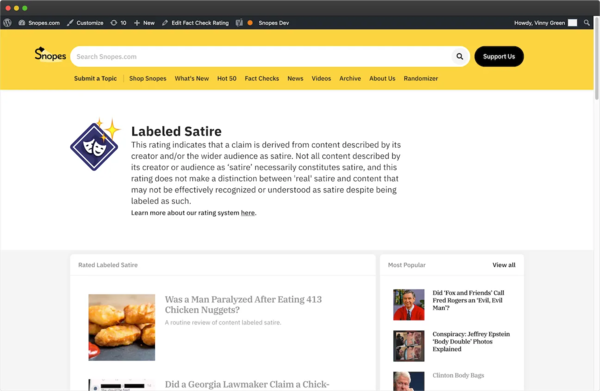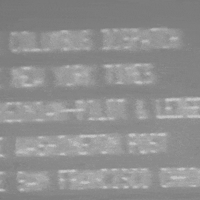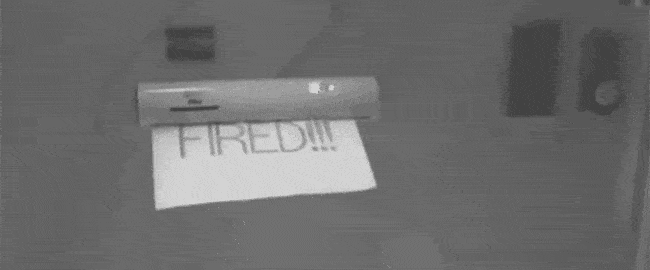
(Luis Cortes/Unsplash)
The story about David Mikkelson, the co-founder of Snopes, apparently plagiarizing dozens of stories bums me out. But honestly, it doesn’t surprise me.
To be clear, I’m not trying to absolve Mikkelson his sizable mistakes in basically copy-pasting headlines and text from other mainstream outlets in an effort to score cheap search traffic. More, I’m trying to contextualize them.
I think there’s an early era of the internet for which our modern thinking about digital news did not yet apply. These sites were effectively news before professional journalists dominated the web, that came up from the internet and were defined by it. Only a small handful of digital native news sites from that era—most notably Slashdot, Drudge Report, Fark, and yes, Snopes, founded in 1994 as an urban legend debunking site—have managed to survive into the modern day largely in their original form.
These sites quickly morphed expectations for news reporting online beyond traditional standards. For example, Fark pulled from basically every news site in an effort to highlight the weird and interesting things happening in the world. And this meant much of its coverage was local news. This was great for a key metric that many news outlets focused on, traffic. But it meant that websites could regularly pull in tens of thousands of hits on stories that local residents weren’t actually reading, but the broader world was. This meant that many local news sites suddenly needed a national advertising strategy, which they weren’t designed for.
Slashdot, meanwhile, emphasized discussion, largely a new element in media circles. And Drudge, in its aggregation, basically put aside questions of bias by admitting that, yes, it had a lean.

Snopes’ emphasis on fact-checking was purely grassroots in nature at first, and reflected the fact that the internet was a key source for people making stuff up. It wasn’t like fact-checking sources from the pre-internet era, which were more institutional, but instead came from the bottom up.
In fact, all of these examples represent bottom-up growth. And I think in a lot of ways, because they emerged from the internet rather than from a traditional source of funding or a traditional gatekeeper, it made them exciting. But I think that when things travel into a sphere like journalism without doing the J-school work, it sometimes leaves them open to clear gaps in news judgment. Many of us suck at media literacy, in part because most of us never got the training.
For his part, Mikkelson sort of admitted this in his comments to BuzzFeed.
“I didn’t come from a journalism background,” he told the outlet. “I wasn’t used to doing news aggregation. A number of times I crossed the line to where it was copyright infringement. I own that.”
(One might argue that he’s been doing this for decades and should have known better at this late juncture, to which I say—yeah, fair. But gaps are gaps.)
When I got into journalism, I was basically part of the last generation that would almost fully join the field through the traditional farm system of small papers to midsized papers to large papers. That system still exists, but it’s no longer what it once was. These days, journalism is far more likely to emerge from online outlets that have greatly improved their standards over the years. BuzzFeed is an excellent example of this—love or hate their listicles, when they report stuff, it’s usually quite solid, as this piece on Snopes is.
But it’s worth keeping in mind that online journalism was once seen as the wilderness. And just because some of those sites born in the wilderness made it through to the present day doesn’t mean that their rough edges have been sanded down.
For better or for worse, they’re still there. Occasionally, they poke out.
Time limit given ⏲: 30 minutes
Time left on clock ⏲: 5 minutes, 22 seconds



